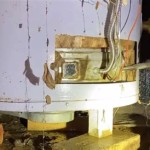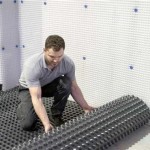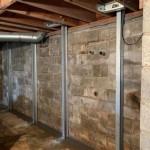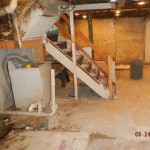Best Insulation for Basement Ceiling
A well-insulated basement ceiling can significantly improve the comfort and energy efficiency of your home. By preventing heat from escaping through the ceiling, insulation can help to keep your basement warmer in the winter and cooler in the summer. It can also reduce noise levels and improve air quality.
There are a variety of factors to consider when choosing insulation for your basement ceiling. These include the type of insulation, the R-value, the cost, and the ease of installation. The R-value is a measure of how well the insulation resists heat flow. The higher the R-value, the better the insulation.
Here are the five best types of insulation for basement ceilings:
- Fiberglass Batts
- Cellulose
- Spray Foam
- Rigid Foam
- Mineral Wool
Fiberglass batts are the most common type of insulation used in basements. They are made of fiberglass fibers that are held together by a binder. Fiberglass batts are relatively inexpensive and easy to install. They have an R-value of R-13 to R-38.
Cellulose insulation is made from recycled paper. It is a loose-fill insulation that is blown into place. Cellulose has an R-value of R-13 to R-38. It is a good choice for basements that are difficult to insulate with batts.
Spray foam is a type of insulation that is applied as a liquid and expands to fill the space. It has an R-value of R-13 to R-60. Spray foam is a good choice for basements that are difficult to insulate with other materials.
Rigid foam is a type of insulation that is made from polystyrene or polyurethane. It is available in sheets or boards. Rigid foam has an R-value of R-5 to R-7 per inch. It is a good choice for basements that have limited space.
Mineral wool is a type of insulation that is made from rock or slag. It is a loose-fill insulation that is blown into place. Mineral wool has an R-value of R-13 to R-38. It is a good choice for basements that are exposed to moisture.
The cost of insulation varies depending on the type of insulation and the R-value. Fiberglass batts are the most affordable option, while spray foam is the most expensive. The cost of installation also varies depending on the type of insulation and the difficulty of the installation.
If you are not sure which type of insulation is right for your basement ceiling, you can consult with a professional insulation contractor. A contractor can help you choose the best insulation for your needs and budget.
Insulating your basement ceiling is a great way to improve the comfort and energy efficiency of your home. By following these tips, you can choose the best insulation for your needs and budget.

Should I Insulate My Basement Ceiling And Walls Aire Serv

Best Insulation For Soundproofing Your Ceiling Renoviso

7 Best Kinds Of Insulation For Basement Ceilings Homelyville Ceiling

What Is Basement Ceiling Insulation And It Worth

Ceiling Insulation In Your Basement

What To Know About Soundproofing A Basement Ceiling

How To Insulate Your Basement 2 10 Home Buyers Warranty

Ceiling Wall Services Foam Tech

Basement Insulation Upstate Spray Foam

Average Cost To Insulation A Basement Forbes Home
See Also








